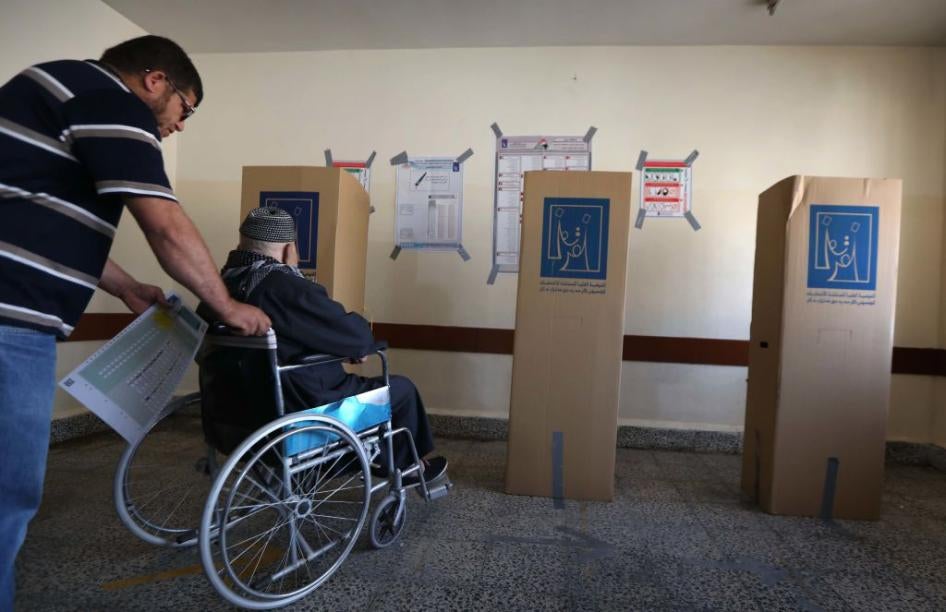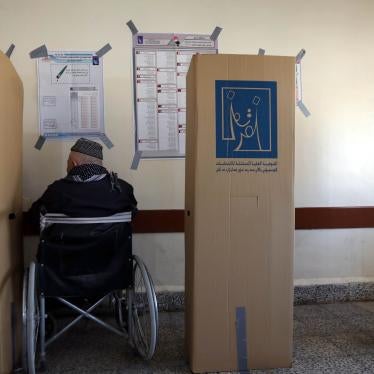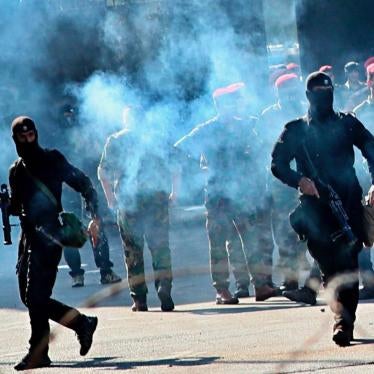Next week, Iraq will hold parliamentary elections, but many people with disabilities are effectively denied their right to vote due to discriminatory legislation and inaccessible polling places.
Iraq, plagued by decades of violence and war, has one of the world’s largest populations of people with disabilities.
Ahead of the elections, Human Rights Watch is urging Iraq’s Independent High Electoral Commission (IHEC) to improve access to polling places for people with disabilities, and IHEC is one of the very few institutions in Iraq that has engaged seriously with our concerns and research. Hours after our campaign release, the IHEC spokesperson announced it had ordered that people with disabilities have access to transportation on election day. Some people with physical disabilities face obstacles reaching polling places because the government usually bans cars on the roads on election day for security reasons. The IHEC has also started publishing informational videos with sign translation and said it was carrying out trainings for people with disabilities on how to vote.
At the end of September, we were told the IHEC would call on the Higher Electoral Security Committee to issue special permits for vehicles of people with disabilities on election day. The commission called on polling places to ensure physical accessibility and said it would locate ballot boxes on the ground floor of schools. It also said it was setting up a hotline so that people facing obstacles to voting could report their experiences.
Unfortunately, the commission did not address other Human Rights Watch recommendations. It said it could not hire people with disabilities to work at polling places, claiming the tasks involved are too “physically demanding,” perpetuating stigma against people with disabilities. It said it would not be able to consider any forms of early or alternative voting for people with disabilities (though other groups in Iraq get to vote early) or print Braille ballots.
The commission has yet to announce which polling places are now physically accessible, which is key to encouraging some people with disabilities make the effort to reach them.
While more is needed, the positive commitments of IHEC in these elections represent a significant advance and should pave the way towards ensuring that the next time Iraqis head to the polls, every person with a disability who wants to vote can do so.










